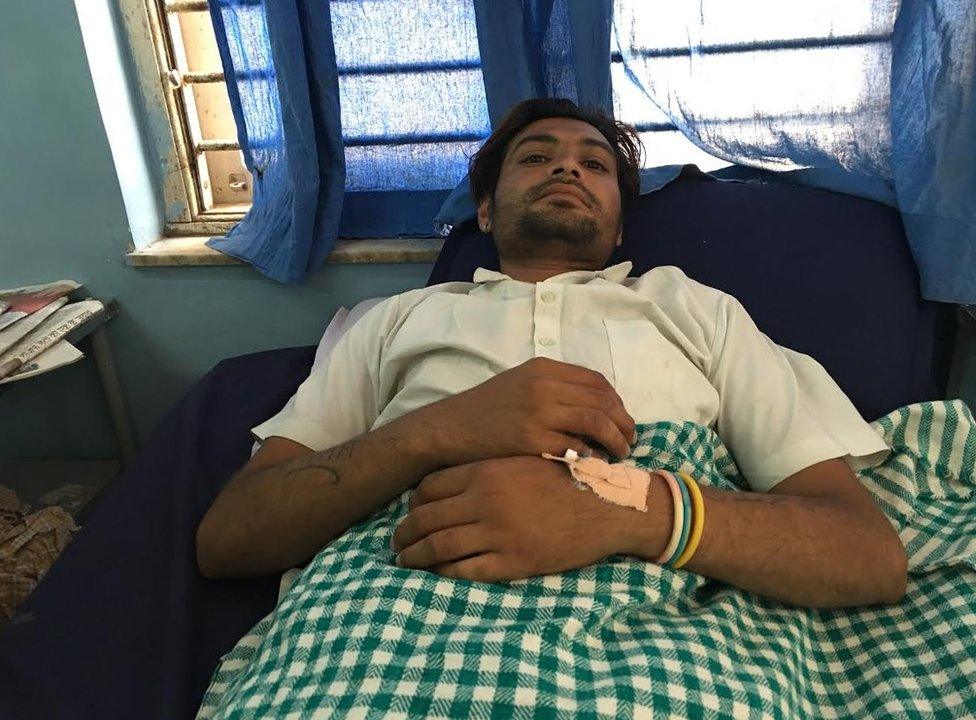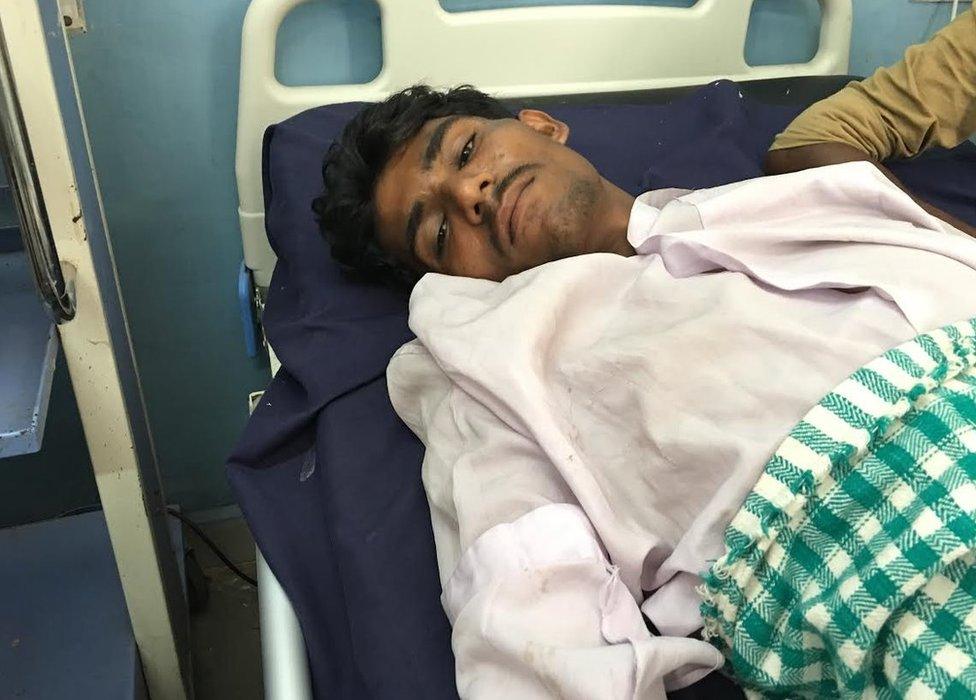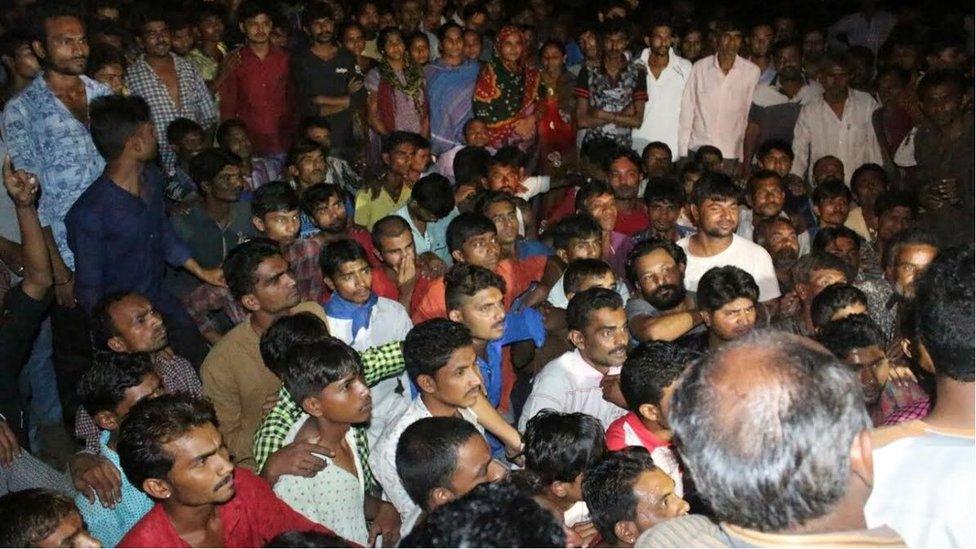Suicide as protest among Gujarat Dalits
- Published

Jagdeesh said he hoped his actions would get "justice" for his community
More than 30 Dalit have tried to take their own lives recently in the western Indian state of Gujarat.
They say it was a protest against the public beating of four low-caste Dalit men by cow-protection vigilantes, but psychiatrists have said their extreme response could be a case of mass hysteria, as BBC Hindi's Vineet Khare reports.
A recent video, external of the four men, believed to be tannery workers, being stripped and beaten with sticks, allegedly by members of a Hindu hardline group in Gujarat's Una town, sparked massive protests by Dalit groups.
The men had been trying to skin a dead cow. Many Hindus consider cows sacred and their slaughter is banned in many Indian states.
As the video gained traction online, some Dalit youth decided to kill themselves as an extreme form of protest.
Dalit groups told the BBC that one man died, but the rest were saved by relatives or friends.
Among them was Jagdeesh Bhai, a daily wage worker who earns about 400 rupees ($6; £4.50) a day.
"I did it for my community. We want justice. We don't get justice", he told BBC Hindi.
Mr Bhai was found by members of his family who immediately rushed him to hospital, where he is receiving treatment.
"Images from the video had been circulating in my head. They hit our brothers," he said, adding that he did not know what else he could do.
Sheer desperation
Suicide as a means of protest has been employed across the world, most notably in recent times by Tibetan monks who have set themselves on fire in protest against Chinese rule.
But the action taken in Gujarat has been called "unprecedented, external" by Indian experts, who say that the extreme step shows the sheer desperation of the community.

Doctors have said Mr Vegda is fine, but relatives say he appears to be mentally unwell
"I have not met any of those who have attempted suicide but it looks like a case of mass hysteria, a need to be noticed," psychiatrist Himanshu Desai from the Gujarat city of Ahmadabad told the BBC.
"These people have fewer opportunities to come up. They are also impacted by how the media has covered the incident and put the spotlight on the condition of the community."
This is compounded by the fact that there are no mental health facilities or resources available to the community.
The Gujarat village Mr Bhai belongs to, for instance, has no access to mental health facilities, and the government hospital he is receiving treatment in has no psychologists or senior counsellors.
The only people attempting to comfort the troubled men in the hospital beds are their friends and family members.
A relative of Dineshbhai Rajabhai Vegda gestures at the man lying immobile in bed.
"Doctors say he is fine but I don't think so. He repeats words, he slurs, he has no control over his actions. Sometimes he begins to laugh and then breaks into sobs. He has become like someone who is mentally ill," he said.
"The video of this incident has had a psychological impact on him. Sometimes he uses so much force it's difficult to control him."
Cry for justice
The father of Mahesh Raja Rathore, another Dalit man who attempted suicide, says he does not believe his son did the right thing.
"Yes it is true that we are discriminated against. To this day, we cannot eat along with members of the upper caste from our village. But how will this solve anything?" he told BBC Hindi.
His son says he consumed poison in an attempt to get the "culprits" in the video punished.
"You would have seen in the papers how badly the Dalits are treated in Gujarat. These incidents refuse to cease. When I saw the video, I felt what's the use of this life?" he said.
Similarly, Kishorebhai Solanki, said he attempted suicide because he "felt angry", but is now more hopeful that the uproar created by the video will translate into some justice.
"I saw on TV that Mayawati [Indian Dalit leader] is coming over. I think something for the Dalits will happen. The culprits should be sent to jail for at least 15 years," he said.
- Published19 July 2016
